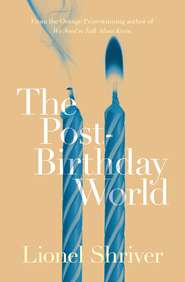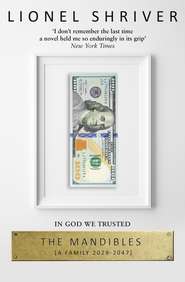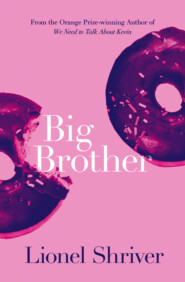По всем вопросам обращайтесь на: info@litportal.ru
(©) 2003-2024.
✖
Ordinary Decent Criminals
Автор
Год написания книги
2018
Настройки чтения
Размер шрифта
Высота строк
Поля
Still, those were the days, when disposal had a little variety. Lately all you heard was Semtex, Semtex, Semtex—Coca-Cola to British Telecom, every product line suffered monopoly over time. In the latter seventies, you found Frangex, Gelamex, Quarrex, and piquant blends of HME, from the sharp diesel of ammonium nitrate and fuel oil to the fragrant marzipan of nitrobenzene. (ANNI made you dizzy, and Farrell knew British operators who could no longer eat certain Christmas cakes, since the smell of almonds made them sick. Farrell, on the other hand, would walk in bakeries just to breathe. The smell was nostalgic.) Back then commercial was scarce and the opposition was resourceful. “I can walk into any kitchen and make a hole in the room,” Porter had declared. “Soap suds, flour, seltzer; throat lozenges, sugar, cream of tartar, even dried bananas: add ten minutes of education and stir.” Dead on, for Farrell dismantled bombs made of anything from fermented garbage to Styrofoam coffee cups, in casings from a tampon incinerator to a stuffed toy bear.
As a result Farrell’s relationship to ordinary objects electrified. Piles of shoe boxes, a pocketbook by an empty chair, sacks of rice delivered to Chinese restaurants all shivered with menace; mailings from the Ulster Museum threatened more than harassment for checks. Not to mention cars. Farrell couldn’t walk down the street without noting whether the Cortina there was riding low, or pass pubs without knocking on arriving barrels of Tennants, confirming by the cong that they were only full of beer. They weren’t always, either. Farrell’s whole world anthropomorphized. Call it paranoia, insanity, but for Farrell, whose environment had more the ugly tendency to go numb, in whose former life people had become objects rather than the other way around, the animation was delightful, like living in a cartoon where clocks danced, refrigerators talked, the cow jumped over the moon. So did Farrell, if he wasn’t careful.
Those days, too, the business was surprisingly personal, if sometimes infantile—like the wine case left in Whitewells Magic Markered in three-inch-high letters, IRA on one side, TE-HEE, HE-HEE, HO-HO, HA-HA! on the other. He grew to recognize the style of particular bombmakers, each with their explosives of choice, a distinctive twist to their connections, pet booby traps. He gave them names, too: Rat, Mole, Toad, and Mr. Badger. Farrell had favorites. Irrationally, he preferred the better-made bombs. He scorned sloppy wiring. Inaccurate switches made of clothespins and rubber bands filled him with the same disdain he felt toward incompetence anywhere. Elegant devices filled him with admiration. He had to remind himself they were intended to spread old ladies on Fountain Street like sour cream, because prizing open a carton all neatly layered with Semtex and fresh herring, Farrell wanted to shake somebody’s hand.
Farrell had run his private bomb disposal service for five years. However inconceivably, he was still alive and that made him cocky. They had been far more active years than he’d ever have predicted, for potty as locals considered his project at first Farrell found he filled a need. In the mid-seventies, Provisional bombings of other Catholics were not so rare. Weary of the dole, the odd Taig would join the army or RUC, double targets for being Crown forces and turncoats. “Known” informers could consider themselves fertilizer. For a time, Catholic bakers, lorry drivers, even binmen who served the army would sometimes notice fishing line over the gates to their walkways. (The Provos had a faddish side—for a while there, fishing-line trip switches were all the rage, and Farrell would constantly reach into his suit pockets to find stray lengths of nylon tangled with his change.)
Furthermore, in the absence of police protection for large parts of West Belfast, the Provos had assumed law enforcement; their courts were quick, their sentences simple, since—well, you could hardly blame them—they couldn’t maintain a private Long Kesh of their own. Robbery on behalf of the IRA was respectable, but the organization looked askance at lads who asked chip shops for donations to more obscure causes. As a result, Farrell had rescued more than one lowlife hood the world was surely better without, but O’Phelan’s service was ever distinguished by its indiscrimination.
For Farrell’s clients were by no means all Catholic. While at first none too eager to call in a papish bomb man, plenty of Prods were even less anxious to call in the army to complain those Provy wankers had hit their brothel, their unlicensed bookie joint, their cache of Kalashnikovs. Uncooperative victims of Loyalist protection rackets had often preferred Farrell to the RUC likely to press for names, and it was healthier not to turn in these civil servants on either side of the divide. Protestant businessmen sometimes planted bombs on their own premises to collect government compensation; Farrell had twice been asked to disassemble devices by next-door shopkeepers unwilling to inform, but equally unenthusiastic about getting in on the scheme. Besides, as far as the Prods were concerned, why not a Catholic bomb man? The thing goes off, one less Taig.
Just practically, it was sometimes simpler to drag that lanky bastard in, with an unclaimed package on a shoemaker’s bench that could as well be cakes as Togel. The army would ship the whole block up the road and divert traffic and string that bloody white plastic cordon everywhere, all very well if the whole panto was still interesting, which it wasn’t the third time in a week. O’Phelan was sure enough a wog, some even claimed not the full shilling, but he worked well and fast and alone and didn’t fuck about, just sent you down the way, and by the time you’d scoffed a pack of fags he was done, like. The army would tinker for hours with their wretched robot, which never seemed to work, and send it into the shoemaker’s from half a mile away, all for three sticky buns. O’Phelan? He looked in the bag. Took a bite. You bought him a drink, and that was that.
While the Provos were none too delighted to have their gratuities waylaid, they could only applaud Farrell’s undermining of Orange racketeering and compensation fraud, and they took particular pleasure, being themselves keen for panache, in some of O’Phelan’s more outlandish pranks, particularly the ones involving cattle—Paisley’s ram, or the bull he rented for the Apprentice Boys parade. More than one pint was raised up Andytown Road after the Great Bonfire Sabotage of ’79. No one ever figured out what exactly got sprayed or sprinkled or nested into the piles of planks and tires and shipping flats compiled over the months to celebrate William of Orange’s tired old triumph over James at the Battle of the Boyne, but once those monsters went up, this unbelievable reek rose over the whole of the Shankill, to drift in a noxious cloud all the way to City Hall, with a smell so censorious it amounted to political commentary.
Вы ознакомились с фрагментом книги.
Приобретайте полный текст книги у нашего партнера:
Приобретайте полный текст книги у нашего партнера:











